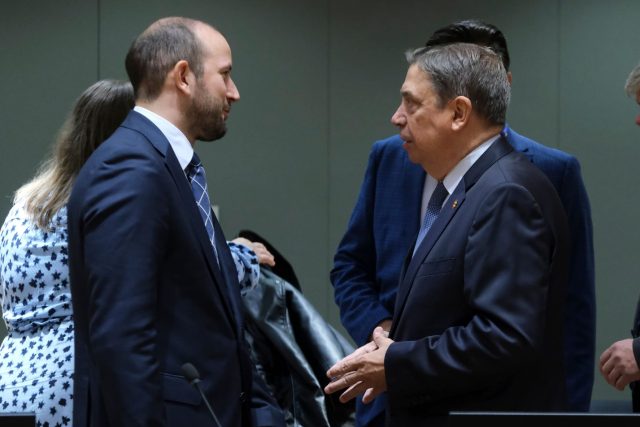
The European Commission is engaged in negotiations with fisheries ministers to study the fishing possibilities for the EU fleet. The European Union wants to decide on Total Allowable Catches (TACs) and quotas for 2023. Spain has opposed all the EU proposals drawn up by the Czech presidency of the European Union because, according to sources in the Spanish Ministry of Agriculture, Livestock, and Fisheries, the progress of the negotiations is “frankly meager”.
The draft agreement on the EU table considers a 10% increase in fishing opportunities for hake after eight years of cuts, as well as a 12% increase in anglerfish and 33% for megrim in the Cantabrian Sea. In addition, the EU wants to establish multiannual quotas instead of the current annual quotas. The Czech Republic’s agriculture minister, who is also president of the Council until the end of 2022, Zdenek Nekula, said that these negotiations are a “good starting point” for a final agreement to ensure that fishermen have clear conditions by 1 January 2023 with this new agreement. “We will continue the discussions as long as it takes to reach a final consensus,” Nekula said.
What is also under consideration is a 0 TAC for horse mackerel fishing, to alleviate the current situation of the species, with a 7.5% reduction of the Total Allowable Catch. This measure has been very controversial, especially in Spain, which has rejected the negotiations and some of the initiatives, especially those mentioned above on southern hake, which could mean an impact of 30 million euros on the Galician coast, according to the autonomous government of the Xunta. This would affect 3,800 crew members in the purse seine and coastal fleet. A Coruña, for its part, has calculated that the EU measure would translate into 4 to 5 million euros in losses for its activity.
Madrid has also rejected the maximum limit for the catch of red shrimp proposed by the European Union or the fishing effort regime for longliners for hake, as well as the increase in fishing days in the Mediterranean to three additional weeks per year. The Spanish Minister for Agriculture, Livestock and Fisheries, Luis Planas, described this as “unacceptable” because it would mean that the “Mediterranean fleet would only be able to fish for approximately 150 days” a year. In fact, this same measure is what led Spain to vote against the European Commission’s proposal on TACs and quotas in the Mediterranean in 2021. Planas also criticised the fact that there will not be sufficient compensation, as agreed in the EU, for the crews of the 700 or so vessels that adopt the selectivity measures.
Planas also called for the proposed reductions in Total Allowable Catches that the EU proposed for other species in the Atlantic, where Spain has interests in 18 of the 26 stocks that would not see any improvement and would be affected. The figures stand at a 36% decrease for Norway lobster in the Bay of Biscay, 11% for sole, and 10% for pollack in the Atlantic Ocean.
Spain is seeking to coordinate with the affected member states in order to be able to appeal against the fisheries agreements that the European Union will sign in the coming weeks. Meanwhile, the EU-27 continues to negotiate quotas and fishing reductions in order to approve the agreement before 2023.



 Subscribe
Subscribe